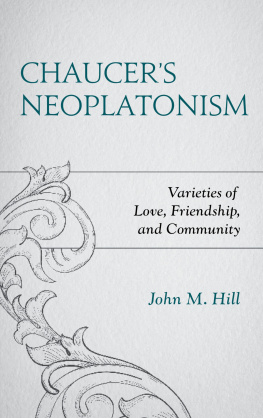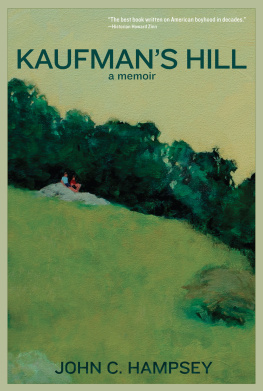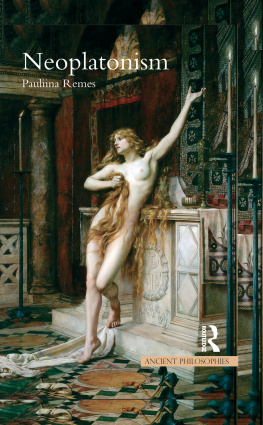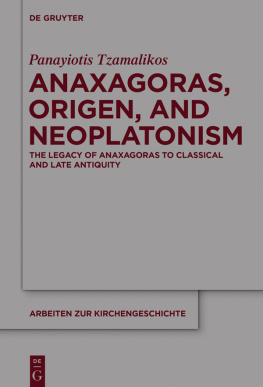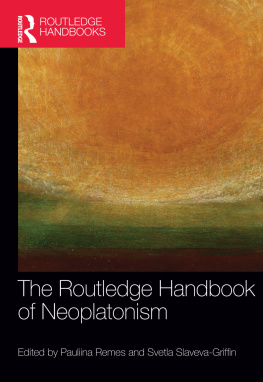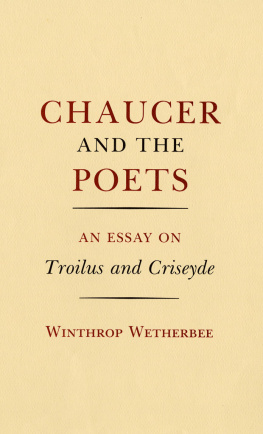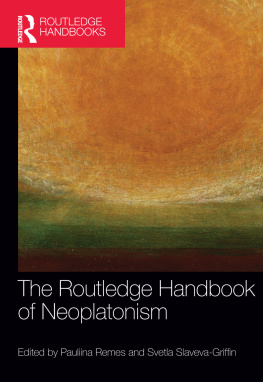Hill John M. - Chaucers Neoplatonism
Here you can read online Hill John M. - Chaucers Neoplatonism full text of the book (entire story) in english for free. Download pdf and epub, get meaning, cover and reviews about this ebook. year: 2012, publisher: Lexington Books, genre: Science. Description of the work, (preface) as well as reviews are available. Best literature library LitArk.com created for fans of good reading and offers a wide selection of genres:
Romance novel
Science fiction
Adventure
Detective
Science
History
Home and family
Prose
Art
Politics
Computer
Non-fiction
Religion
Business
Children
Humor
Choose a favorite category and find really read worthwhile books. Enjoy immersion in the world of imagination, feel the emotions of the characters or learn something new for yourself, make an fascinating discovery.
- Book:Chaucers Neoplatonism
- Author:
- Publisher:Lexington Books
- Genre:
- Year:2012
- Rating:4 / 5
- Favourites:Add to favourites
- Your mark:
- 80
- 1
- 2
- 3
- 4
- 5
Chaucers Neoplatonism: summary, description and annotation
We offer to read an annotation, description, summary or preface (depends on what the author of the book "Chaucers Neoplatonism" wrote himself). If you haven't found the necessary information about the book — write in the comments, we will try to find it.
Chaucers Neoplatonism — read online for free the complete book (whole text) full work
Below is the text of the book, divided by pages. System saving the place of the last page read, allows you to conveniently read the book "Chaucers Neoplatonism" online for free, without having to search again every time where you left off. Put a bookmark, and you can go to the page where you finished reading at any time.
Font size:
Interval:
Bookmark:
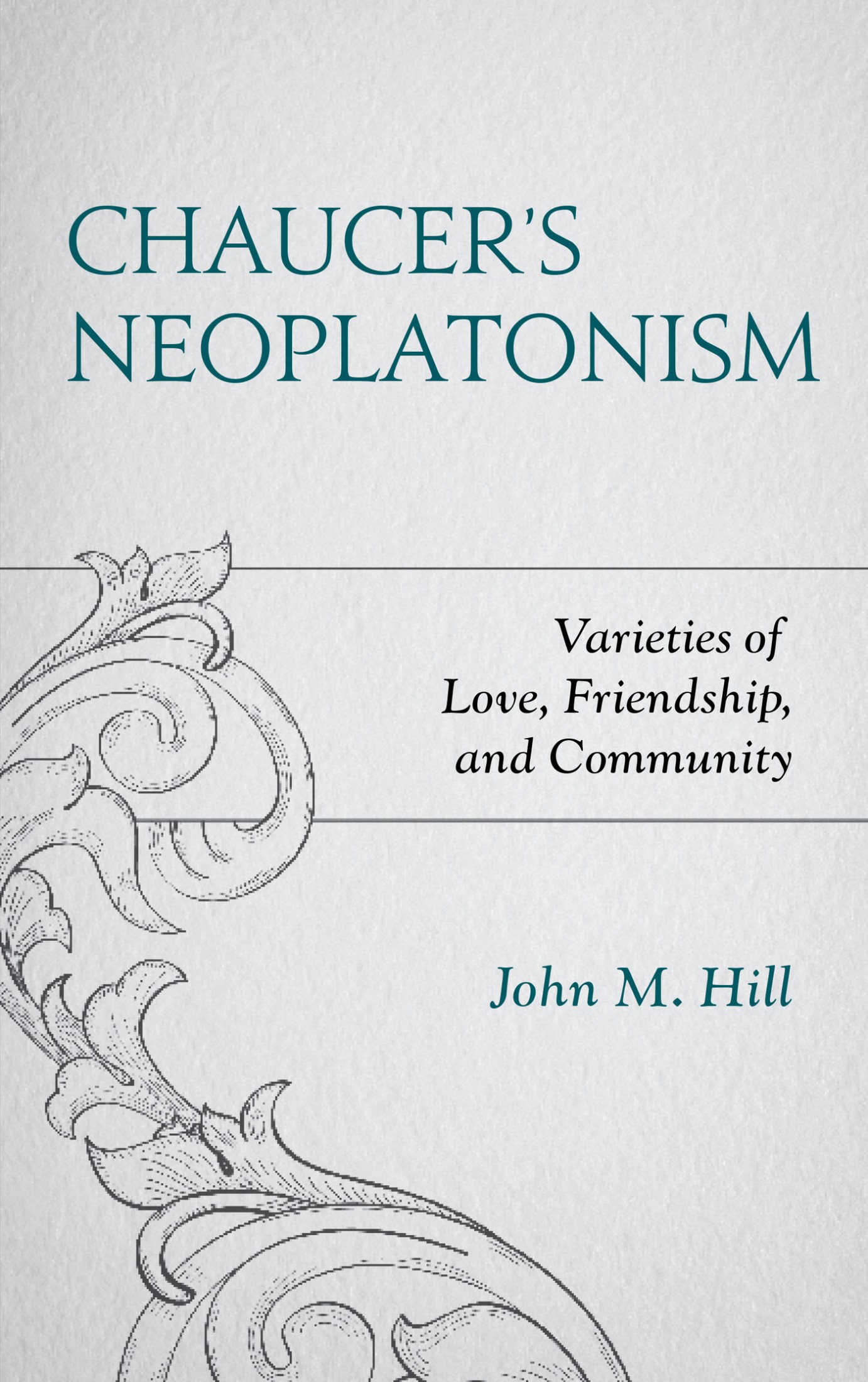
Chaucers Neoplatonism
Studies in Medieval Literature
Series Editor: Albrecht Classen, University of Arizona
Advisory Board:
Werner Schaefke, University of Copenhagen
Christopher R. Clason, Oakland University
Andrew Breeze, University of Navarre
Connie Scarborough, Texas Tech University
Gloria Allaire, University of Kentucky
Fabian Alfie, University of Arizona
Raymond Cormier, Longwood University
Janina Traxler, Manchester University
Marianne Ailes, University of Bristol
Studies in Medieval Literature invites scholars to publish their most powerful, exciting, and forward-looking studies, which will thus become an excellent platform for Medieval Studies at large.
Titles in the Series
Chaucers Neoplatonism: Varieties of Love, Friendship, and Community, by John M. Hill
Chaucers Neoplatonism
Varieties of Love, Friendship,
and Community
John M. Hill
LEXINGTON BOOKS
Lanham Boulder New York London
Published by Lexington Books
An imprint of The Rowman & Littlefield Publishing Group, Inc.
4501 Forbes Boulevard, Suite 200, Lanham, Maryland 20706
www.rowman.com
Unit A, Whitacre Mews, 26-34 Stannary Street, London SE11 4AB
Copyright 2018 by Lexington Books
All rights reserved. No part of this book may be reproduced in any form or by any electronic or mechanical means, including information storage and retrieval systems, without written permission from the publisher, except by a reviewer who may quote passages in a review.
British Library Cataloguing in Publication Information Available
Library of Congress Cataloging-in-Publication Data Available
ISBN 978-1-4985-6193-8 (cloth : alk. paper)
ISBN 978-1-4985-6194-5 (electronic)
 TM The paper used in this publication meets the minimum requirements of American National Standard for Information Sciences Permanence of Paper for Printed Library Materials, ANSI/NISO Z39.48-1992.
TM The paper used in this publication meets the minimum requirements of American National Standard for Information Sciences Permanence of Paper for Printed Library Materials, ANSI/NISO Z39.48-1992.
Printed in the United States of America
This study began many years ago with a paper given at the Sewanee Medieval Colloquium, noted below, and with two others at New Chaucer Society conferences, first in Boulder, Colorado, and then in Portland, Oregon. I thank NCS conference and special session organizers, especially Peggy Knapp, for my participation in a 2002 session on Chaucerian aesthetics. Earlier drafts of the book received suggestions from friends, colleagues, and anonymous readers, for which I am grateful. Chaucers Neoplatonism would be less robust without the revisions those suggestions encouraged. The Naval Academy Research Council provided support for several weeks in several summers, for which I am grateful. Finally, I especially thank Albrecht Classen for his generous support and guidance, which led to a contract with Lexington Books.
Chapter 3, although greatly expanded, has material previously published in Friendship in the Middle Ages, which appeared in the Handbook of Medieval Culture, Volume I, ed. Albrecht Classen (Berlin and Boston: Walter De Gruyter, 2015), 56581. I am grateful for permission to republish part of that essay. Chapter 5, while also greatly expanded, contains material first published in The Countervailing Aesthetic of Joy in Troilus and Criseyde, The Chaucer Review, a special issue on Chaucer and Aesthetics, eds. Susanna Fein and David Raybin, 39, no. 3 (2005): 298322. Again permission to republish has been most kind. Some of chapter 5s themes appeared earlier in Aristocratic Friendship in Troilus and Criseyde: Pandarus, Courtly Love and Ciceronian Friendship in Troy. I thank Susan J. Ridyard and Robert G. Benson for accepting that paper and for arranging its publication, along with others from the Sewanee Medieval Colloquium. See New Readings of Chaucers Poetry, introduced by Derek Brewer, eds. Robert G. Benson and Susan J. Ridyard (Cambridge: D. S. Brewer, 2003), 16582.
Finally, I must thank Lindsey Porambo and Nick Johns at Lexington Books for their superb editing and production assistance.
And of course, as always, my wife, Barbara, not least for putting up with my Chaucer talk as this project developed and grew over the years. Her patience and her great cooking were inspirational.
My title names Chaucers philosophical inclination and his big subjects, by which he would establish himself as something more than a maker of verse, indeed as a poet standing in literary fame along with Virgil and Dante, Homer, Ovid and others. Despite the servants servant he creates in the Troilus narrator, one who professes his unsuitability and who dares not even pray to Love, Chaucer sees himself standing on a pillar of famea poet of Love and Friendship. He would stand as a tragic poet of the wedding of noble friendship literature to love story in Troilus and Criseyde, and as a comedic poet-reporter of the sometimes turbulent fellowship shown by his pilgrims in The Canterbury Tales. Among those pilgrims, and in their stories, the deep friendship we see in Troilus is replaced by often short-lived gestures toward sometimes discriminatory fellowship, that is, variously exclusive rather than always inclusive community, given pilgrim notions of felicity. Fidelity in Love will transpose also and variously into notions of carnality, wedded love, and religious love. That latter love involves urgings of mercy and, eventually, community in Christ. Chaucers philosophical orientation also poses an underlying issuethe positing or crediting required for reasonable supposition or belief. A rational Neoplatonist will posit truth even in unlikely places or manifestations.
Although Chaucer does not explore belief or supposition psychologically or elaborate it philosophically, although interpretation and misinterpretation receive attention, supposition really matters almost as a poetics, often expressed as wonder, as in the narrators reading about Alcyone and Morpheus in The Book of the Duchess (wonder yf it were so, l. 233); or it is expressed as leve, something one believes out of necessity there where there is no proof, as in Men shal nat wenen every thyng a lye (believe everything a lie) that has not been seen with ye, the eye (PLGW, G1011). This latter point, made wryly, concerns heavens joys and hells pains, certified by the negative assertion that Bernard the monk never saw everything. And, God knows, a thing is nevertheless so even though no one has seen it. The same can be said of truths asserted in old books, truths poets presumably discovered because they loved the law of nature (kynde). Thus, though we have no immediate proof of those asserted truths, we should to the doctryne of these olde wyse / Yeven credence, in every skylful wyse, / And trowen on these olde aproved storyes (G PLGW, 1921). That skillful extending of credence to old doctrines and wise men can even include a gesture of faith, as in feyth and ful credence (F PLGW, 31), a gesture premised on, given in consequence of, delight in books. Moreover we can, in good feyth, assert that new wisdom (newe science) comes from old books (PF, 25).
Wonder, belief, credence, trusting, warranting, good faiththose versions of supposition, moreover, have everything to do with any topic Chaucer treats poetically. To believe at least provisionally or not in the truth of poems and fictions is at the heart of his thinking about readers, books and tidings in his early work (along with passing meditations on varieties of dream form and story). Of course the subject of love and other things, such as the nature of dreams, fictions, loss, books and their meanings, problems of interpretation, nobility, authority and tyranny, choice, pathos and woman kind come up in one or more of his dream visions:
Font size:
Interval:
Bookmark:
Similar books «Chaucers Neoplatonism»
Look at similar books to Chaucers Neoplatonism. We have selected literature similar in name and meaning in the hope of providing readers with more options to find new, interesting, not yet read works.
Discussion, reviews of the book Chaucers Neoplatonism and just readers' own opinions. Leave your comments, write what you think about the work, its meaning or the main characters. Specify what exactly you liked and what you didn't like, and why you think so.

